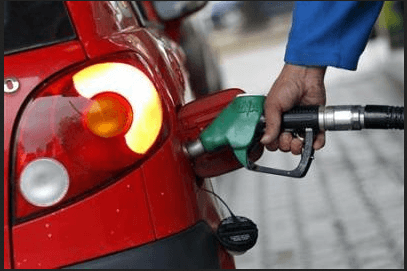
As the Ghanaian cedi continues to struggle against the major trading currencies, economist and Dean of the University of Cape Coast Business School, Professor John Gatsi, is predicting a possible hike in fuel prices in the second quarter of 2024.
Based on Bank of Ghana data, the cedi depreciated by 6.8 percent in the first quarter.
However, Prof. Gatsi maintained that if the different exchange rates at the Forex Bureau were computed, the cedi would have depreciated even more.
“If indeed we want to compute the exchange rate or the depreciation from January [2024] to now, you will be talking about 16 percent depreciation,” Prof. Gatsi told Alfred Ocansey on Ghana Tonight yesterday, [Tuesday, March 26].
“So if the Bank of Ghana is using the minimum exchange rate that is being quoted, that is not reflective of the cost structure of many businesses in the country,” said Prof. Gatsi, adding, “What we know is that majority of people interface either with the banks or with forex bureaus.”

Responding to whether the second quarter portends any positive signs for businesses and the cost of goods and services, the economist underscored, “Businesses become more active from the second quarter so it is the second quarter that we expect transfer of proceeds from foreign engagements in the country, outside the country so there will be pressure.”
More from economist Prof. Gatsi
- Relative stability of Cedi: Minimum exchange rate not reflective of cost structure for businesses – Prof. Gatsi
- IMF boss’ caution to Ghana over dealings with private creditors apt – Gatsi
He added that businesses tend to stabilise in the second quarter and therefore spend a lot in terms of import duties.
“So this is the time that we want to see even more pressure on the currency going forward.”
Prof. Gatsi further indicated that the depreciation of the cedi suggests increased cost to the business person, indicating that this cost is factored into the pricing of goods and services to the final consumer.
“For the businessperson, when you mention depreciation, he relates it to cost so the depreciation affects the dollar-denominated import duties that he’s paying. And when he’s pricing his items, those will become the input that will influence his pricing, therefore, prices will go up,” he stated.
Prof. Gatsi added, “If we are not able to contain this, we will see more distortion, and fuel prices will be going up because of the exchange rate and a lot of things that depend on the exchange rate will also be going up.”
He also noted that the cedi depreciation is likely to negatively impact persons taking foreign-based professional courses, which are usually priced in major currencies like the US dollar, and the British pound, amongst other currencies.
The post Fuel prices to go up in second quarter – Economist first appeared on 3News.
Read Full Story






















Facebook
Twitter
Pinterest
Instagram
Google+
YouTube
LinkedIn
RSS